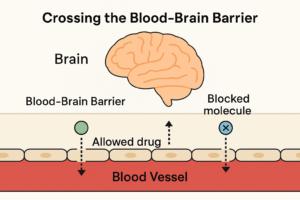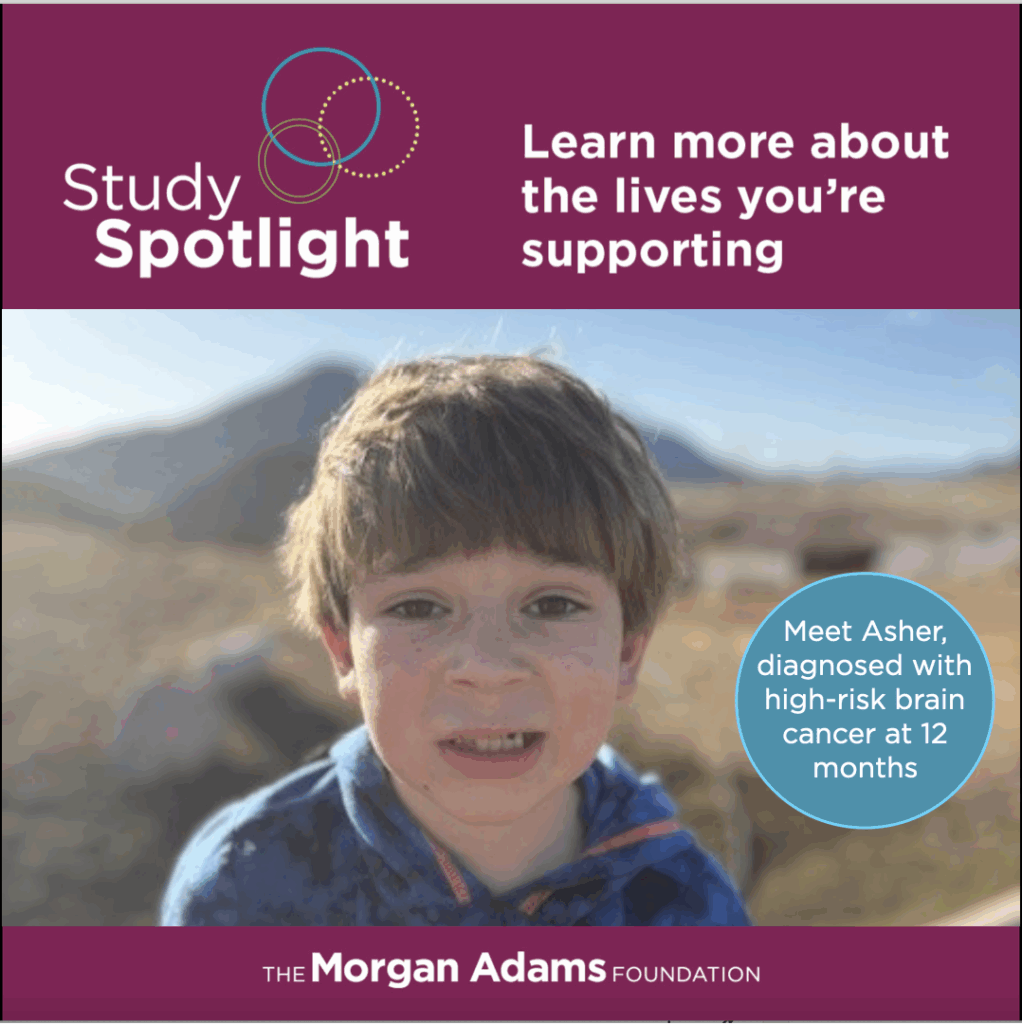
Breaking the barriers in in high-risk pediatric brain tumor treatments
Brain tumors are the leading cause of cancer-related death in children — and for some high-risk tumor types, there has been little to no improvement in survival rates for decades.
Children diagnosed with these types of brain cancers, such as ATRT, Myc-MB, and DMG, face devastating odds. These tumors are especially aggressive, difficult to treat, and can be resistant to current therapies — often leaving families with few – if any – options.
But now, thanks to your support, researchers are exploring a class of promising drugs that could offer a new path forward (especially when combined with radiation) – potentially becoming the new standard of care for these deadly tumors.
A powerful new treatment strategy for aggressive childhood brain tumors
With funding from The Morgan Adams Foundation, scientists are exploring a new way to treat certain pediatric brain tumors using a targeted drug called a proteasome inhibitor. This approach works by causing toxic proteins to build up inside the cancer cells, which leads to their death.
One big challenge in brain tumor research is getting new drugs to reach the tumor, since it’s hard for many treatments to cross the blood-brain barrier. But excitingly, this new treatment may have overcome that problem!


“It’s a rare and exciting opportunity to potentially bring something truly new to the clinic for these families.”
Why this work matters
If this study shows that a proteasome inhibitor can be effective in treating kids with these types of brain tumors — or even just that it’s possible to get drug into the tumor — it could justify further research and early-phase clinical trials.
Even small advances can open doors. With your support, researchers are gathering the data needed to make smarter, more informed decisions about how to help children with the most difficult brain cancers.
This is how progress begins — one question at a time, one possibility at a time!
Want to learn more about the science behind this and other studies you’re helping to fund?
Learning more about the lives you’re supporting
Meet Asher
Asher was just over a year old when he was diagnosed with ATRT, an aggressive and fast-growing brain tumor that occurs mostly in very young children. Doctors found three tumors in his brain.
To save his life, Asher underwent an intense and grueling treatment plan: two brain surgeries, chemotherapy, radiation, and a stem cell transplant — all before his second birthday. It was a long and difficult road, but in the summer of 2018, Asher finally got to go home. Today, he is doing great, has no evidence of disease, and is excited to start 4th grade this fall. He loves dogs, robots, and building things. His favorite colors are red and blue.
Asher’s story is a testament to the power of how research can best inform existing treatments — and a stark reminder of how much better those treatments still need to be. Because the therapies that saved him also carry high risks and long-term side effects.
That’s why research into smarter, safer, more precise treatments like proteasome inhibitor drugs are important. And Asher’s story is just one of the thousands that make funding these more effective, less harmful options as urgent as possible.
To support groundbreaking kids’ cancer research like this click here.

Want to learn more about the science behind this and other studies you’re helping to fund?